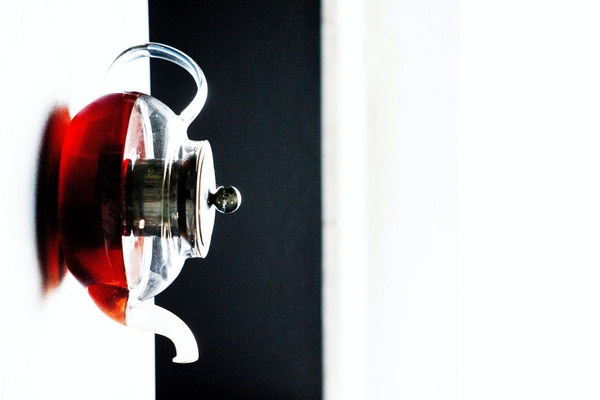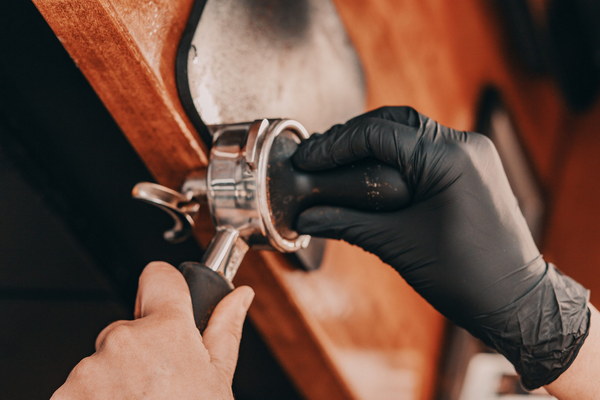Revitalize Your Vitality How to Strengthen Your Qi and Blood with Weak Pulse Detection
In traditional Chinese medicine (TCM), the pulse is a crucial indicator of a person's health and well-being. A weak pulse, known as Xu Mai in Chinese, signifies that there is a deficiency in either Qi or Blood, or both. This article will delve into the concept of a weak pulse, its causes, and the essential practices to reinforce Qi and Blood in order to restore balance and vitality.
Understanding Weak Pulse
A weak pulse is characterized by its faintness and lack of strength. It can be felt by placing fingers on specific points on the wrist, where the pulse is most prominent. TCM practitioners analyze the quality, rhythm, and depth of the pulse to determine the state of a person's Qi and Blood.
Causes of Weak Pulse
There are several reasons why a person may have a weak pulse:
1. Deficiency of Qi: Qi is the vital energy that sustains life. A deficiency in Qi can be caused by chronic stress, poor diet, or lack of physical activity.
2. Deficiency of Blood: Blood is responsible for nourishing the body and mind. A deficiency in Blood can result from anemia, heavy menstrual bleeding, or anemia caused by nutritional deficiencies.
3. External Factors: Exposure to extreme weather conditions, such as cold or dampness, can also contribute to a weak pulse.
Symptoms of Weak Pulse
People with a weak pulse may experience the following symptoms:
1. Fatigue and weakness
2. Palpitations (irregular heartbeat)
3. Shortness of breath
4. Paleness or weakness of the tongue
5. Poor concentration and memory
Strengthening Qi and Blood
To address a weak pulse and restore balance, TCM offers a variety of treatment options, including herbal medicine, acupuncture, and lifestyle adjustments. Here are some effective methods to strengthen Qi and Blood:
1. Herbal Medicine: TCM herbs are known for their ability to tonify Qi and Blood. Some commonly used herbs include:
- Astragalus (Huang Qi): Boosts Qi and strengthens the immune system.
- Ginseng (Ren Shen): Enhances vitality and supports the adrenal glands.

- Polygonum multiflorum (He Shou Wu): Nourishes the Blood and promotes longevity.
- Chinese Angelica (Dang Gui): Improves Blood circulation and reduces menstrual cramps.
2. Acupuncture: This ancient therapy involves inserting fine needles into specific acupuncture points to stimulate Qi flow and balance the body's energy. Acupuncture can help strengthen Qi and Blood, alleviate fatigue, and improve overall well-being.
3. Diet: A balanced diet rich in essential nutrients can help replenish Qi and Blood. Incorporate the following foods into your diet:
- Iron-rich foods: Red meat, poultry, fish, beans, lentils, and spinach.
- Vitamin C-rich foods: Citrus fruits, berries, and leafy greens, which help absorb iron.
- Vitamin B12-rich foods: Fortified cereals, eggs, and dairy products.
- Folic acid-rich foods: Leafy greens, beans, and fortified cereals.
4. Exercise: Regular physical activity can boost Qi and Blood circulation. Engage in gentle exercises like tai chi, qigong, or yoga to enhance your energy levels.
5. Stress Management: Chronic stress can deplete Qi and Blood. Practice stress-reducing techniques, such as meditation, deep breathing exercises, or spending time in nature.
In conclusion, a weak pulse can be an indicator of Qi and Blood deficiencies. By incorporating TCM practices, a balanced diet, and lifestyle adjustments, you can strengthen your Qi and Blood, restore balance, and improve your overall health and vitality. Remember to consult with a qualified TCM practitioner before starting any new treatment or making significant changes to your lifestyle.









